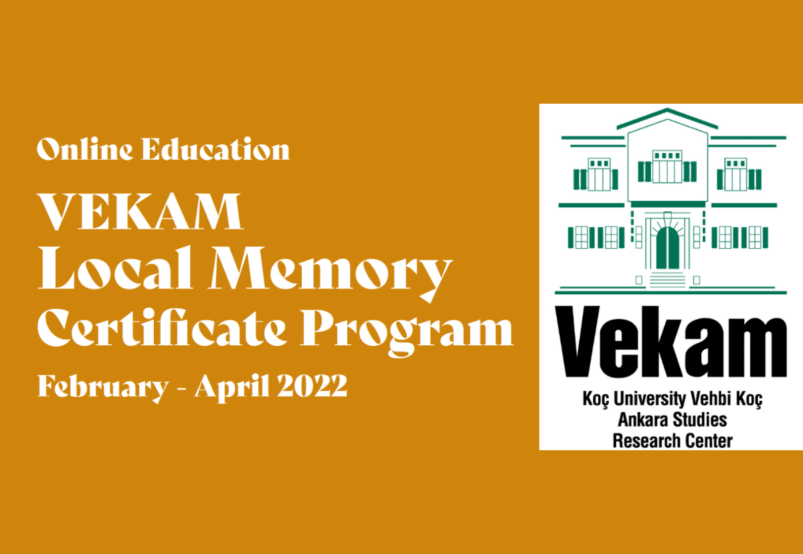Koç University Vehbi Koç Ankara Studies Research Center (VEKAM) organized an online “Local Memory Certificate Program” from February to March 2022. The program, within the scope of local memory studies, aimed to increase the equipment and skills of the participants from Turkey, who are working on researching, documenting, protecting, sharing, and transferring social, cultural, and spatial values to the future generations, creating awareness in society and making them sustainable, on scientific, and innovative methods.
Koç University VEKAM supports high-quality research on Ankara and its surroundings since 1994. VEKAM also provides services to researchers of all ages with its comprehensive library and rich archive consisting of books, theses, articles, and periodicals about Ankara and its environs. While being a worldwide reference source for Ankara is among the center’s primary goals, VEKAM publications, for example, the Journal of Ankara Studies, are intended to be reference points in the area, as well.
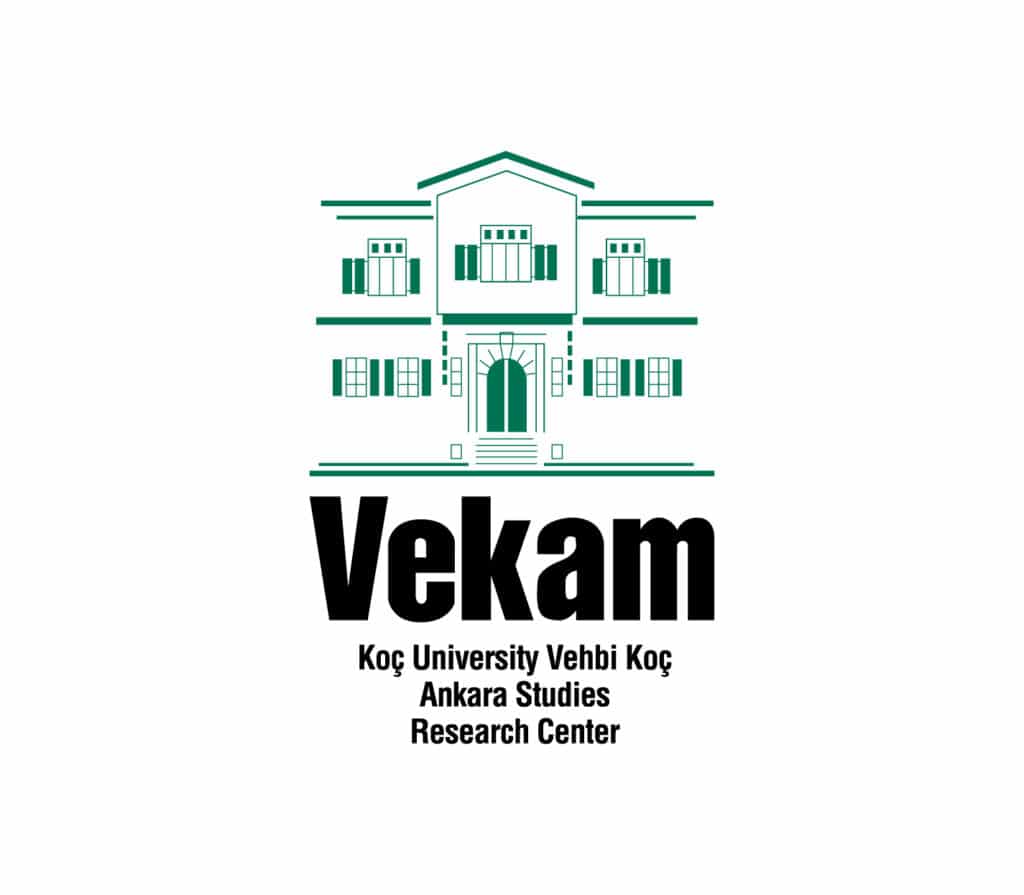
In line with the Center’s above-explained mission and vision, VEKAM Local Memory Certificate Program was inaugurated with an online conference, open for all, by Prof. Dr. İlhan Tekeli titled “Different Ways for Locals to Claim their Identity” on the first day of February to conceptualize the idea of the locality from diverse perspectives. After the preliminary event, the program continued for the following 10 weeks with its modules where academics and experts shared their knowledge.
Modules
The program consists of 5 modules which included lectures on 39 different topics by academics and experts in the sector from both public and private institutions in Turkey.
- Module 1: Memory
- Module 2: Local History and Memory
- Module 3: Place and Memory
- Module 4: Information Sources of Local Memory
- Module 5: Local Cultural Memory Centers and Implementation Process
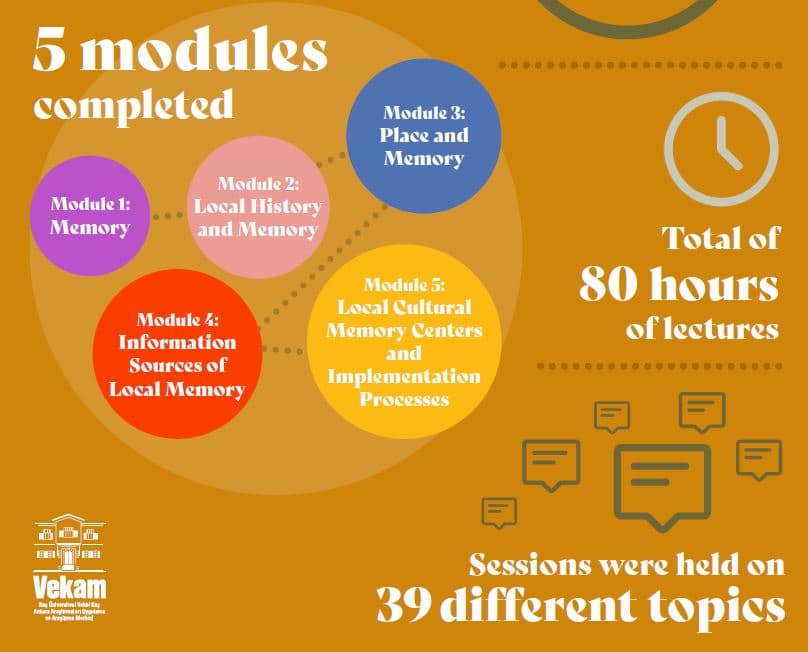
Even the high number of applicants proved the heavy demand for capacity-building activities about memory studies which was in fact the point of departure for creating this certificate program in the planning phase. Consequently, it also evidenced the limited supply to this demand in the field of local memory studies, at least in Turkey. Yet, the program had a limited quota for the experts working in local governments and NGOs, urban memories, research centers, city museums, archives, libraries, researchers who carry out local studies in the field or who want to work in these fields, and researchers who conduct postgraduate studies on related subjects at universities.
Throughout the 80 hours of e-lectures, selected participants were provided with the opportunity of gaining competency in the program with rich content consisting of specialization courses, workshops, framework presentations, and resource sharing. In this framework the participants had the opportunity to be informed on various topics, starting with the theme of memory centers and applications in memory centers. In addition, the following question was also contemplated to find answers each time throughout the entire program: “How do people remember?”.
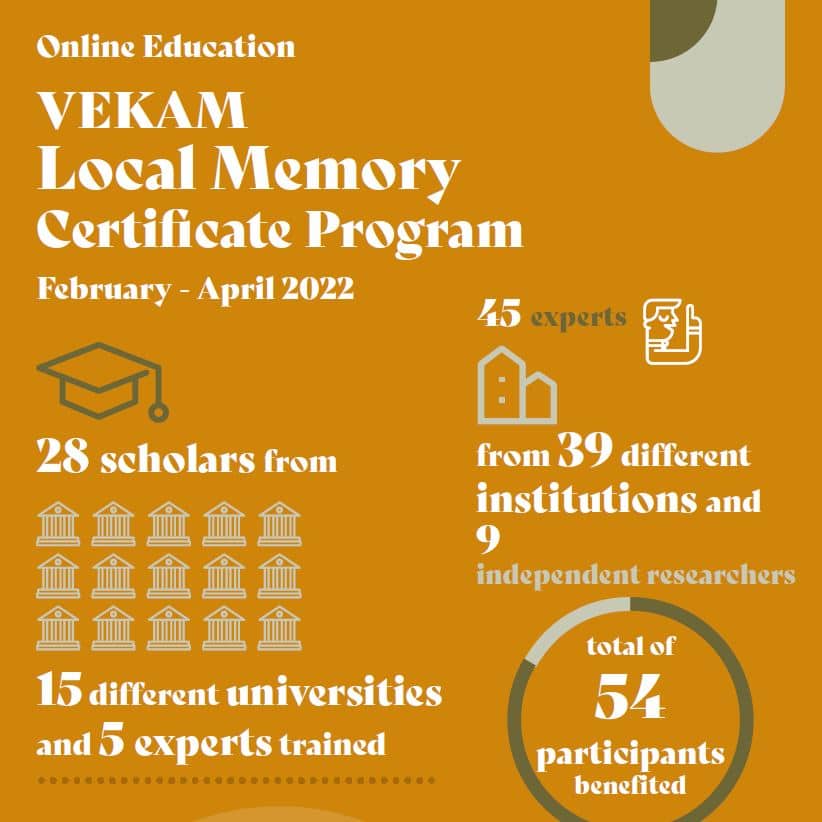
Similar to the launch event, at the closing session of the VEKAM Local Memory Certificate Program, Prof. Dr. Gil Pasternak delivered a keynote speech titled “Activating the Heritage Database: Digital Pasts in the Post-digital Present”. The second part of the program highlighted innovative projects of Asst. Prof. Dr. Pınar Çevikayak Yelmi, Nil Tuzcu, and Dr. Lauren Nicole Davis in the field of memory studies to showcase good practices around the world as an inspiration for not only the program participants but also for the others since the event was also open to everyone, as well.
Positive Outcomes
After having completed e-lectures, all participants were requested to prepare a final project in relation to their individual research/work to reflect on what they had learned during the program in addition to their already existing experience and knowledge in the subject. Accordingly, 35 research/project proposals were submitted. Proposals mainly focus on uncovering, recording, preserving, promoting, and transferring the local cultural heritage, ranging from archaeology to architecture and music to handicrafts. In each submission, the principles of oral history, architectural history studies, conservation plan development, archiving, and digitization are used as desirably underlined throughout the program lectures.
In the end, a total of 54 participants, 45 experts from 39 different institutions, and 9 independent researchers benefited from the programme all around Turkey. Moreover, the launch event and closing session each welcomed around 150 additional individuals from at least 5 different countries since they were both open to a broader public which lead to an even greater diffusion of the knowledge shared. Consequently, it should also be highlighted that this much of diverse background and high participant number of both the instructors and learners were dependent on the online structure of the program. Similar to numerous other examples that we are now quite familiar with, this program too, could not be conducted at this scale without the current technological means and opportunities. Therefore, it would probably not be as inclusive and effective as it already was.
Last but not least, the final survey indicates that overall satisfaction with the course content is as high as 5,6 out of 6 together with a 100% recommendation rate to others. Resulting from this and the high number of applicants in the beginning, VEKAM considers organizing a similar program in the coming months again to foster knowledge exchange in line with one of its primary visions to become a reference hub in local memory studies.
About the author
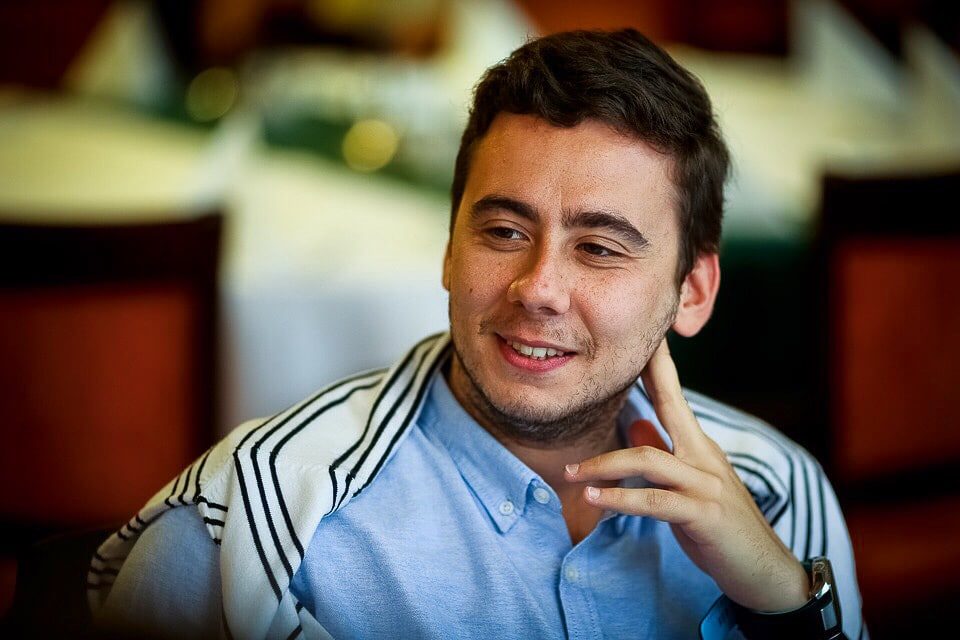
Levent Tökün is an archaeologist and art historian focused on cultural heritage politics and museums. He obtained his BA degree in archaeology and history of art from Koç University. He later completed his dual MA degree in world heritage studies at the Brandenburg University of Technology Cottbus-Senftenberg & in cultural heritage at Deakin University with an MA thesis on the issue of the return of illicitly trafficked cultural property both to and from Turkey from the perspective of policy consistency and goodwill. During 2020-2021, he represented Turkey as one of the first European Heritage Youth Ambassadors (EHYA) selected by Europa Nostra, European Heritage Tribune, and the European Students’ Association for Cultural Heritage (ESACH). He is currently working at Koç University Vehbi Koç Ankara Studies Research Center (VEKAM) as a project and event assistant specialist. Levent is also a member of ICOM, Europa Nostra, ICORP Turkey, and ESACH.

